If you’ve traveled in Japan, you’ve probably heard the word onsen.
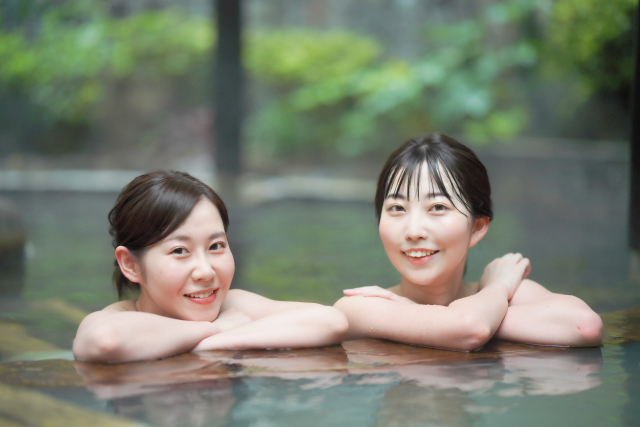
More than just hot water, onsen (温泉) are natural hot springs, born from Japan’s volcanic activity. With over 3,000 onsen resorts scattered across the country, soaking in these mineral-rich baths is one of the most iconic Japanese experiences you can have.
日本を旅したことがあるなら、おそらく「温泉」という言葉を耳にしたことがあるでしょう。温泉は単なるお湯ではなく、日本の火山活動によって生まれた天然の熱い泉です。全国に3,000以上の温泉地が点在し、ミネラル豊富な湯に浸かることは、日本ならではの体験の一つです。
🌋 What Exactly Is an Onsen?
Japan sits on the so-called “Ring of Fire,” a region full of volcanic activity. Thanks to this geology, underground water gets naturally heated by magma and comes bubbling up to the surface. The result? Relaxing hot springs, often packed with minerals like sulfur, iron, or sodium, each believed to bring health benefits.
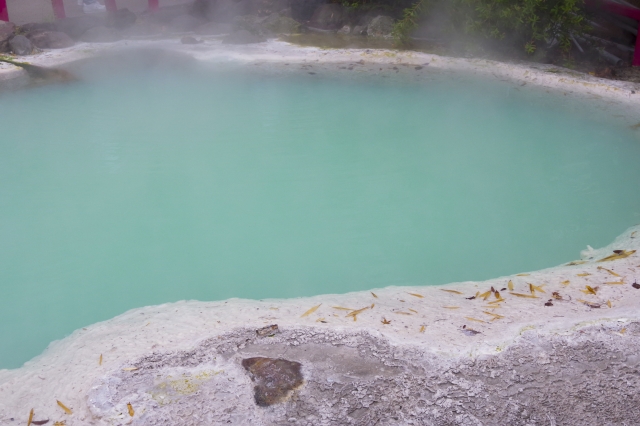
In Japan, an onsen isn’t just a bath—it’s considered a gift of nature. Towns and resorts have grown around these springs, and some even appear in anime, manga, and video games as classic scenes of relaxation.
日本は「火の輪」と呼ばれる火山活動が活発な地域に位置しています。この地質構造のおかげで、地下水はマグマによって自然に温められ、泡を立てて地表に湧き出ます。その結果生まれたのが、硫黄や鉄、ナトリウムなどのミネラルを豊富に含み、それぞれ健康効果があると信じられている癒しの温泉なのです。
日本では温泉は単なる風呂ではなく、自然の恵みとされています。温泉を中心に町やリゾートが発展し、アニメや漫画、ゲームにも定番のリラクゼーションシーンとして登場します。
🛀 Why Do Japanese People Love Onsen?
Bathing in hot springs has been part of Japanese life for centuries. Samurai once used them to heal wounds, monks sought spiritual cleansing, and today, people go simply to unwind.
Onsen bathing is said to:
- Improve blood circulation
- Relieve muscle pain
- Calm the mind and reduce stress
- Promote better sleep
But beyond health benefits, it’s also about slowing down. In modern Japan, where life can be hectic, spending time soaking in silence with nature all around feels like a luxury.
温泉入浴は数世紀にわたり日本人の生活の一部でした。かつて武士は傷を癒すために利用し、僧侶は精神的な浄化を求めたのです。現代では人々は単にリラックスするために訪れます。
温泉入浴には次のような効果があると言われています:
・血行促進
・筋肉痛の緩和
・心の安定とストレス軽減
・睡眠の質向上
しかし健康効果以上に、日常のペースを落とすことにも意味があります。慌ただしい現代日本において、自然に囲まれ静寂の中で湯に浸かる時間は、まさに贅沢なひとときです。

The hot spring is nestled in the mountains, naturally bubbling up from the earth.
In winter, you can see scenes like Japanese macaques coming to warm themselves.
Jigokudani Monkey Park in Nagano Prefecture is a paradise for these monkeys. During the cold winter, they all gather to bathe together. If you’d like to see the monkeys, please visit.
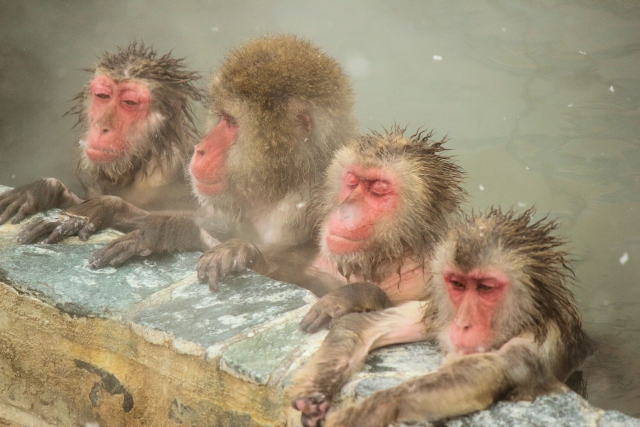
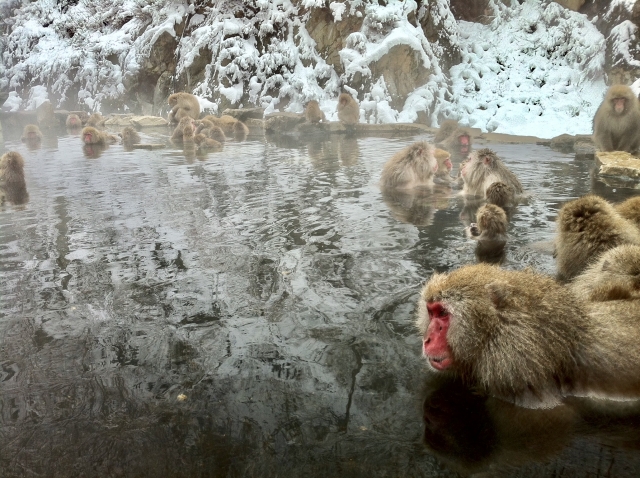
Please note: Jigokudani Monkey Park is not a typical zoo. It is a facility where wild monkeys living in the mountains come to visit. Whether they come or not depends entirely on the whims of these mountain-dwelling creatures. Isn’t that fascinating?
🧴 How to Bathe the Right Way
If you’re interested in actually experiencing a hot spring, we recommend visiting a hot spring inn or hot spring spa.
If you’ve visited spas in Europe or America, you might be surprised by the rules of onsen. Here’s the quick guide:
- Wash first – Always shower and clean your body before entering the bath.
- No swimsuits – Onsen are enjoyed naked. Towels stay outside the water.
- Quiet vibes – Keep voices low; onsen are for relaxation, not parties.
- Rinse again – Some people rinse after bathing, but many prefer to leave the minerals on the skin.
It may feel unusual at first, but once you step into that steaming pool, the awkwardness disappears.
温泉に実際に入ってみたいと思ったなら、温泉地の宿や温泉スパに行くのがおススメです。
欧米のスパを訪れたことがあるなら、日本の温泉のルールに驚くかもしれません。簡単なガイドをご紹介します:
まず体を洗う – 浴槽に入る前に必ずシャワーを浴びて体を清潔にしましょう。
水着は禁止 – 温泉は裸で楽しむものです。タオルは湯船の外に置いておきます。
静かに過ごす – 声を抑えましょう。温泉はリラックスする場所であり、パーティーの場ではありません。
再度のすすぎは不要 – 入浴後に体をすすぐ人もいますが、多くの人が皮膚にミネラルを残すことを好みます。最初は違和感があるかもしれませんが湯気立つ湯船に足を踏み入れた瞬間、その気まずさは消え去ります。
🎭 Tattoos and Onsen: The Complicated Story
One thing many travelers are surprised by: tattoos are often banned in traditional onsen. Why? Because in Japan, tattoos have historically been linked to the yakuza (organized crime groups). Even today, many older generations still carry that association.
That said, times are slowly changing. More and more onsen welcome tattooed guests, sometimes offering private baths or cover stickers. Before you go, it’s best to check the onsen’s website or ask at the front desk.
多くの旅行者が驚くことの一つ:伝統的な温泉では刺青が禁止されていることが多いのです。なぜでしょうか? 日本では刺青が歴史的にヤクザ(暴力団)と結びつけられてきたからです。今でも多くの年配者はそのイメージを抱いています。
とはいえ、時代は徐々に変わりつつあります。刺青のある客を受け入れる温泉が増え、個室風呂を提供したり、カバーシールを用意したりするケースも見られます。行く前に、温泉のウェブサイトを確認するか、フロントで問い合わせるのが最善です。
✨ Final Thoughts
Visiting an onsen is about more than just hot water—it’s about connecting with Japanese culture, nature, and a slower rhythm of life. For anime fans, you’ll notice that hot spring episodes (onsen-kai) aren’t just fan service—they reflect how deeply loved these baths are in real Japanese life.
So next time you’re in Japan, don’t miss the chance to soak in the steam, breathe in the mountain air, and experience an essential part of Japan.
温泉を訪れることは、単なる湯船に浸かる以上の意味があります。それは日本の文化や自然、ゆったりとした生活リズムと触れ合うことなのです。アニメファンならお気づきでしょうが、温泉回(おんせんかい)は単なるファンサービスではなく、実際の日本の生活において温泉がどれほど深く愛されているかを映し出しています。
次に日本を訪れる際は、湯気の中につかり、山の空気を吸い込み、日本の本質的な一部を体験する機会を逃さないでください。

In Japan, there is a phrase called “naked interaction.”
Naked interaction refers to dialogue conducted without any defenses, having shed all protective layers.
…That said, it simply means bathing together, and unless it’s a mixed bath, it carries no sexual connotation.
It signifies building human relationships free from superficial adornment or pretense, originating from Japan’s bathing customs.
Curious about which anime feature hot springs? Don’t miss our guide to Onsen in Anime.”



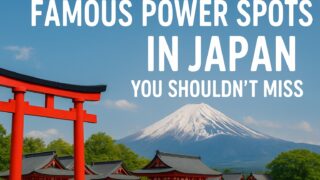
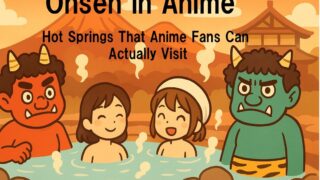
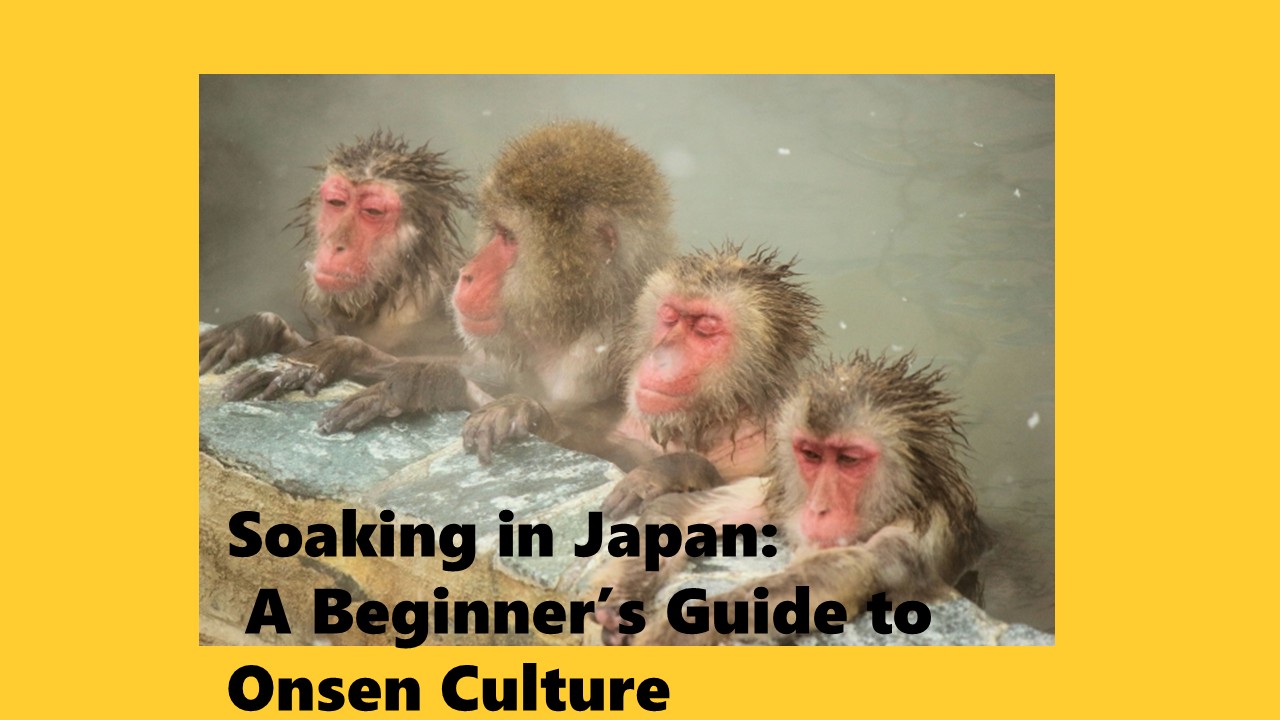


Comments